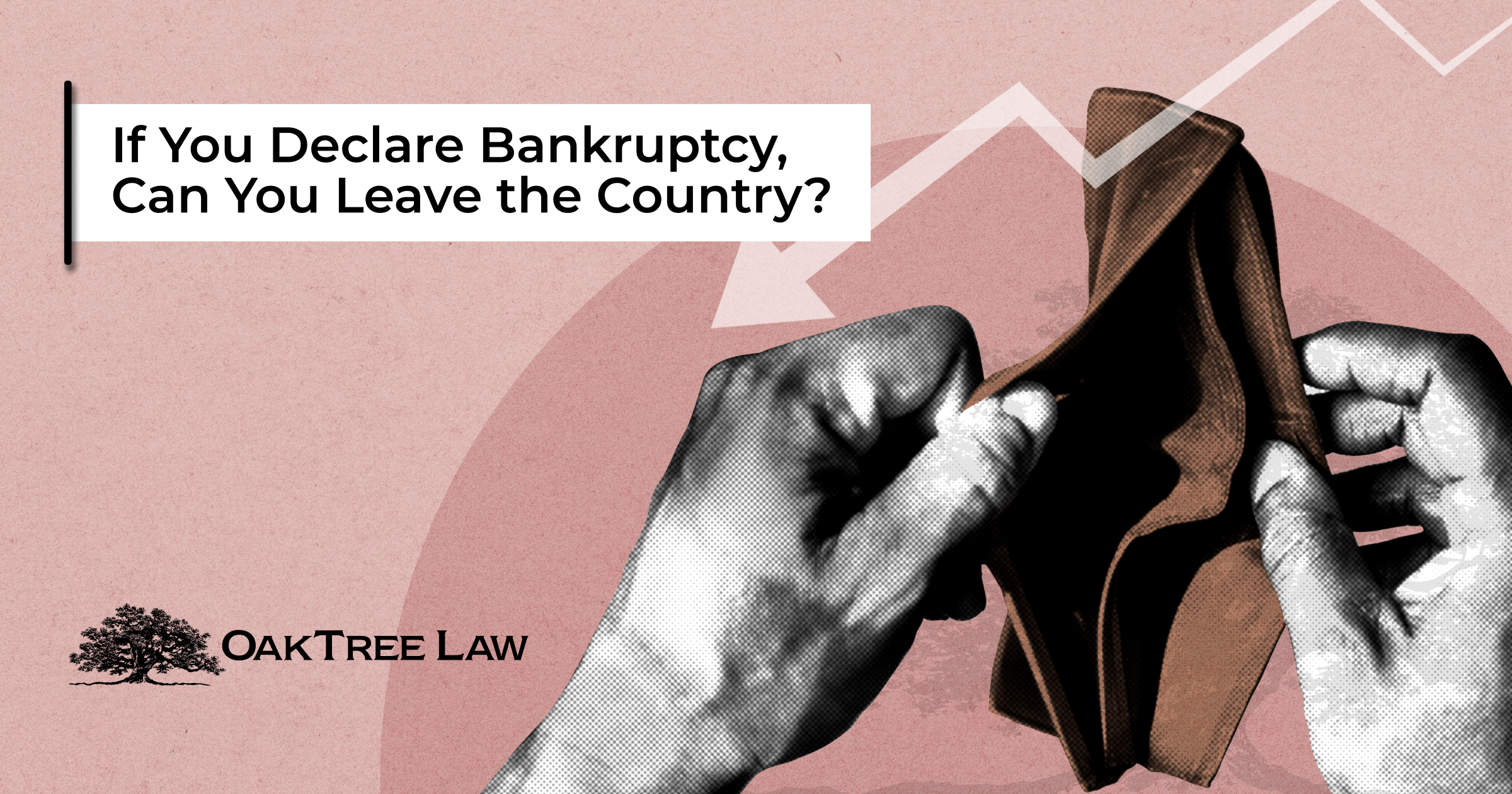
Drowning in debt can feel like a dire situation. You may have thoughts of leaving the country to escape it. But then again, you may have obligations to travel or had made plans before you considered bankruptcy. Will the court see your activities in a negative light? What are the penalties? If you’re asking, “If I declare bankruptcy, can I leave the country?”, we’ll start with circumstances in which it may be considered fraudulent.
Why Leaving the Country Is a Bad Idea
If you paid with a credit card within 90 days of your bankruptcy filing, the court may assume you never intended to repay it. Relying on a discharge to get rid of the debt is irresponsible. When such an action is suspected, an Order of the Bankruptcy Court can be obtained by the creditor or bank. It will then flag the vacation as non-dischargeable.
In bankruptcy proceedings, the amount owed for this trip can be ordered to be repaid. Another complication is if the trip is reimbursed or transferred to a third party, the trustee can seek to liquidate the trip. In this case, the amount spent can be resold to obtain assets for paying off your debt.
Other reasons not to leave the country include:
- If you move abroad and your creditor files a lawsuit beforehand, it can still collect the money you owe (especially if you work for a U.S.-based company and use a U.S.-based bank account.
- Moving to a new country is expensive, even if that country has a lower cost of living. You need to consider your employment situation, travel expenses, and obtaining housing as well as getting a visa.
- You’ll need to submit tax returns to the IRS even after you leave, and creditors can report the debt you owe as income. In your new country, a new credit record can be established, but your name and American credit score will still be connected.
When Your Trip May Not Be a Red Flag
Let’s assume you had a stable financial situation when you purchased the trip and paid for at least a part of it. If you were current with creditors at the time, the vacation probably won’t be held against you. Going away, even if it means leaving the country, won’t make your situation worse. So, if you declare bankruptcy, you can leave the country.
Does Filing for Chapter 7 or Chapter 13 Bankruptcy Make a Difference?
If you pre-paid for your vacation and filed for Chapter 7 bankruptcy, try to use cash or a debit card to cover your expenses. The bankruptcy court will question any sum charged to a credit card. It won’t be dischargeable. And, you may still have to explain the vacation as the court may see it as a luxury. Only good communication can help get around this.
Chapter 13 bankruptcy does not discharge your debts. If taking a planned, pre-paid trip, you should be fine as long as you pay your trustee on time every month. Just remember; don’t miss any meetings or deadlines, pay for anything outside of your disposable income, or take on new, significant debt. If these criteria are met, there are no limits on traveling. You will, however, need trustee approval to plan a new vacation or spend heavily on your upcoming one.
Nevertheless, acquiring a passport could be a problem. Your application may be denied if you owe more than $2,500 in back child support or $50,000 in back taxes (but not for filing for bankruptcy). But it depends on your reason for traveling. If it’s to attend a funeral or visit a relative who is ill, you may be permitted to take the trip.
Get Legal Help
If you have any uncertainties or foreign travel interferes with your bankruptcy case, contact OakTree Law. Our Los Angeles bankruptcy attorneys can provide remedies to your situation. Taking a vacation before filing isn’t illegal if it’s paid for and purchased when you were financially stable. Let us handle any questions and find a bankruptcy option or other remedy that works for you. To get started, call 888-348-2609.